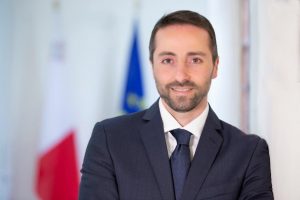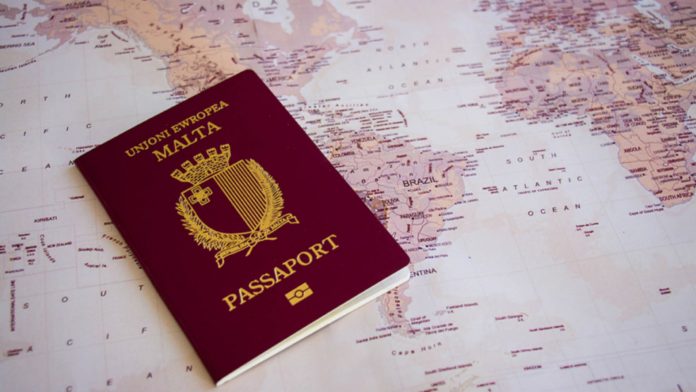A new agency called Community Malta will be set up to deal with matters related to citizenship in Malta.
Malta will be implementing new residence regulations that can lead to citizenship and that take into account the recommendations given by the European Commission, as these rules come into force from today. The Agency, which has operated the IIP since last August, has stopped receiving new applications. The Malta Individual Investor Program Agency has now closed. Accordingly, a new agency has also been set up under the name of Community Malta which will administer matters related to the citizenship of our country and which will replace the previous agency.
“Through the program, the National Fund for Social Development has invested in social housing, health care equipment and improvements to health centers. The program also weighed on the economy of our country during this pandemic, where it saved both the lives and jobs of Maltese and Gozitans, ”said Parliamentary Secretary for Citizenship and Communities Alex Muscat. “That is why we have seen that such an initiative does not stop, but is strengthened and continues to bear the desired fruits and wealth in the development of the communities in our country, “continued the parliamentary secretary.

Muscat
Parliament Secretary Muscat also stressed that Malta is not ready to give up the sacrosanct right that the discretion to grant citizenship be a decision of our country. He also stressed that these new rules have led to drastic changes from the way the previous program was operated.
The government will continue to publish the names of all applicants who receive Maltese citizenship with both exceptional merit and naturalization. Names of persons who will not be granted Maltese nationality will also be published.
The government reiterates once again that citizenship is a competence of the member states individually, with each European country deciding for itself who the individuals it believes should receive citizenship are. There are more than 600,000 individuals who become European citizens each year with very minimal scrutiny. As can be seen from Malta’s recent unprecedented commitment to reforming laws and continuing to uphold European values, Malta is implementing regulations that go beyond what many other European member states do to scrutinize citizenship applicants.
As the Individual Investment Program comes to an end, we can look back and observe how the investment generated has given a big boost to the Maltese economy. In six years, the accumulated investment has reached around € 1.5 billion.
The Agency, which was previously in charge of the Individual Investment Program, will cease to operate from January 2021. A new agency has been created to administer all legal means leading to the acquisition of Maltese citizenship. These include; citizenship by descent, citizenship by merit, citizenship by naturalization by long-term residence and by exceptional service by merit and exceptional service by investment in Malta. The new agency has the power to provide information to the Commissioner of Inland Revenue, the FIAU, the Financial Services Authority and the Commissioner of Police.
The Agency also has the power to disclose information to local or foreign enforcement or regulatory authorities or police agencies.
The new legal framework, introduced in November, takes into account the European Commission’s set of recommendations.
Applicants cannot apply for citizenship immediately after obtaining the status of legal resident in Malta.
Applicants are only allowed to apply for citizenship after having legal resident status for a period of three years, with the exception of a higher investment, where they can apply after one year.
Applicants are required to undergo a rigorous due diligence exercise before being eligible to apply for Maltese citizenship. This is a new step that is being introduced to give the Agency enough time to conduct a thorough investigation into a set of criteria. These include controls on the source of wealth, control on individual funds, studies on risks related to money laundering and controls on security issues.
Findings of irregularities can be communicated to appropriate networks, such as Egmont and security services for EU-wide cooperation, in order to combat money laundering and all security-related risks.
The Agency will carry out an appropriate risk assessment exercise related to each application.
The Agency will ensure that the source of funding of the applicant is legitimate. It will pay due attention to ensuring that there is no money laundering, and that there is no terrorist financing. This is always in accordance with the guidelines issued by the competent authorities.
The new regulations have eliminated the time limit limiting the time during which the Agency must carry out due diligence.
This due diligence should be done on all adult family members in the application.
The number of successful applicants is being limited to 1,500 in total, with no more than 400 per year.
Agents are now governed by dedicated subsidiary legislation. Only a limited set of professionals can be licensed as agents, namely: lawyers, auditors, public accountants and licensed financial advisers. This ensures that licensees are well acquainted with money laundering, financial legalisms and anti-terrorist financing directives. Agents must present a certificate of clean criminal conduct. The agent shall be subject to due diligence by the Agency, both on application and annually thereafter. If an agent is no longer fit after the set period, the license will not be automatically renewed.
The Agency is banning aggressive advertising and the promotion of regulations that lead to citizenship.










